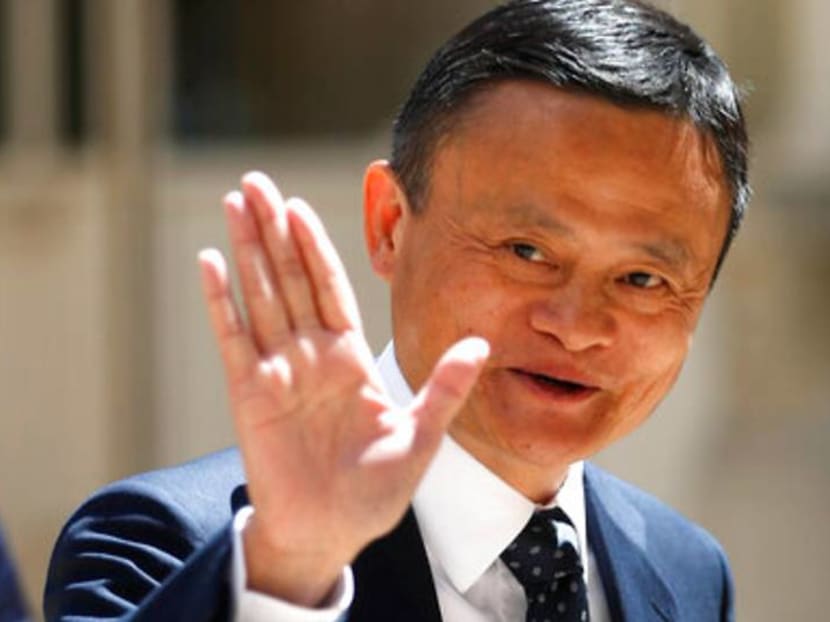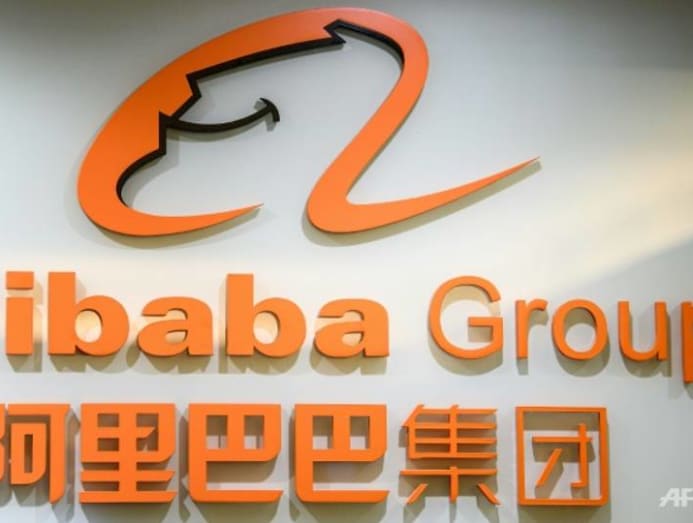commentary Commentary
Commentary: Why China’s US$2.8 billion fine is a huge relief for Alibaba
The Chinese Big Tech firm knows the outcome could be far worse in a country that has ruled by law, in a year of huge importance to the Chinese Communist Party , says Professor Bo Zhiyue.

Alibaba's Jack Ma. (Photo: AP)
SHENZHEN: China’s State Administration for Market Regulation (SAMR) issued a statement against Alibaba Group on Saturday (Apr 10), accusing the e-commerce company of violating the anti-monopoly law and imposing a fine of 18.23 billion yuan (US$2.8 billion) for monopolistic conduct.
The largest fine handed out by authorities ever for anti-competitive behaviour, the penalty is 4 per cent of Alibaba’s total sales in China, which stood at 456 billion yuan (or US$69 billion) in 2019.
But the acceptance of the ruling was swift. In a press release issued on the same day, Alibaba said it would accept the fine and ensure its compliance.
In subsequent calls with investors, Alibaba executives even reaffirmed the importance of oversight, support and guidance from regulators in achieving continued growth.
READ: Commentary: Alibaba makes a whopping US$28 billion bet on its next breakthrough act
READ: Commentary: Jack Ma brought the wrath of Chinese regulators down on Alibaba
CHINA’S LONGSTANDING ANTI-MONOPOLY LAWS
Alibaba knows China’s focus on stemming anti-competitive business practices is longstanding and will not go away.
The anti-monopoly law was first promulgated in August 2008 under President Hu Jintao’s leadership. Different from most other countries where courts determine and enforce action against law-breaking, the State Council of the Central Government in China, an executive branch, established an anti-monopoly commission to act as this final arbitrator.
Under this law, the anti-monopoly commission would investigate allegations of monopolistic actions and issue their findings. Their judgment was final.

Ten years later, in 2018, China merged its three anti-monopoly offices into one and established what is known today as the SAMR - the same entity that imposed the recent fine on Alibaba - drawing from officials from the Ministry of Commerce, the National Development and Reform Commission, and the State Administration for Industry and Commerce.
This move gave the Chinese government a full, holistic oversight of the full spectrum of cases on cartels, mergers and monopolistic behaviour involving non-price related abuses, which hitherto were approached and investigated separately.
However, this reorganisation did not change where these anti-monopoly regulators were situated - they remained part of the Chinese executive branch of government.
READ: Commentary: Maybe Jack Ma became too powerful for China's liking
RULE OF LAW OR RULE BY LAW?
In the Alibaba case, SAMR has served conflicting roles of the disputing party and the arbitrator. The state organ brought allegations against the company and then made a determination of guilt, rather than have a third party, like a court, adjudicate over the charges, as is the case in countries where the rule of law prevails.
Alibaba may have indeed violated the anti-monopoly law, in taking actions that snuffed out competition in the e-commerce market and imposing undue costs on merchants on the platform.
But were there signs its anti-competitive behaviour killed the competition and were detrimental to consumers? After all, Alibaba may have been hyper-competitive but not necessarily monopolistic.

The fact that another similar e-commerce platform company, Pinduoduo, has been growing rapidly in spite of Alibaba’s headstart may be an indication Alibaba has not monopolised the market.
POLITICAL WISDOM
Yet, Alibaba decided to accept the SAMR ruling and pay the fine without any argument. In a country that has yet to establish the primacy of law with a genuine due process, Alibaba did its best to protect its own interests. By accepting the fine, it could close this issue and move on.
Alibaba knows it is not a good idea to push the envelope in a year of great importance for the ruling party in China. 2021 marks the centennial of the founding of the Chinese Communist Party and authorities have big plans to mark this historic milestone.
READ: Commentary: Why did China wait so long to crack down on Alibaba?
READ: Commentary: How Tencent, that other Chinese Big Tech giant, is beating a path to a trillion dollars
Although Alibaba is officially a foreign entity registered in the Cayman Islands, according to its Chairman and CEO Zhang Yong, it is “an authentic Beijing company”. It wants to avoid coming across as a political troublemaker in 2021.
Indeed, Alibaba’s best bet in continuing to thrive is to maintain a low profile from here on out.
Professor Bo Zhiyue is founder and president of the Bo Zhiyue China Institute, a consulting firm providing services to government leaders and CEOs of multinational corporations.





